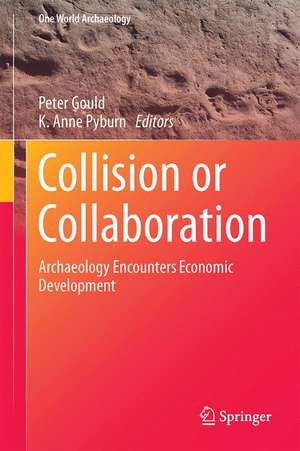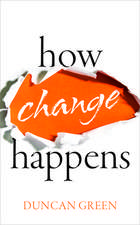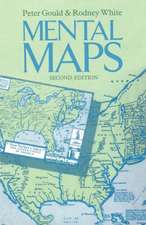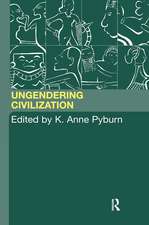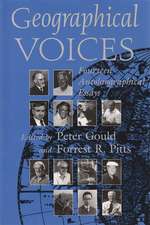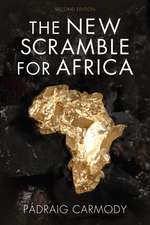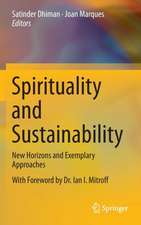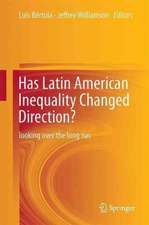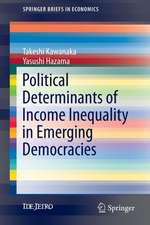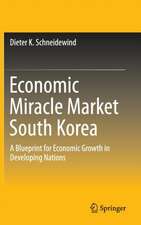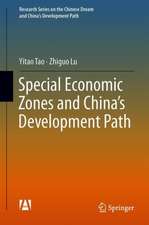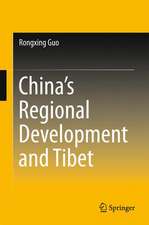Collision or Collaboration: Archaeology Encounters Economic Development: One World Archaeology
Editat de Peter G. Gould, K. Anne Pyburnen Limba Engleză Hardback – 16 dec 2016
| Toate formatele și edițiile | Preț | Express |
|---|---|---|
| Paperback (1) | 523.91 lei 6-8 săpt. | |
| Springer International Publishing – 4 iul 2018 | 523.91 lei 6-8 săpt. | |
| Hardback (1) | 530.10 lei 6-8 săpt. | |
| Springer International Publishing – 16 dec 2016 | 530.10 lei 6-8 săpt. |
Din seria One World Archaeology
-
 Preț: 417.17 lei
Preț: 417.17 lei - 8%
 Preț: 383.64 lei
Preț: 383.64 lei -
 Preț: 358.76 lei
Preț: 358.76 lei -
 Preț: 349.49 lei
Preț: 349.49 lei -
 Preț: 230.66 lei
Preț: 230.66 lei -
 Preț: 498.91 lei
Preț: 498.91 lei -
 Preț: 426.67 lei
Preț: 426.67 lei - 12%
 Preț: 336.21 lei
Preț: 336.21 lei -
 Preț: 389.38 lei
Preț: 389.38 lei - 25%
 Preț: 248.97 lei
Preț: 248.97 lei -
 Preț: 462.60 lei
Preț: 462.60 lei -
 Preț: 475.16 lei
Preț: 475.16 lei -
 Preț: 429.12 lei
Preț: 429.12 lei - 20%
 Preț: 114.19 lei
Preț: 114.19 lei -
 Preț: 406.05 lei
Preț: 406.05 lei - 18%
 Preț: 1061.81 lei
Preț: 1061.81 lei - 23%
 Preț: 329.50 lei
Preț: 329.50 lei - 18%
 Preț: 1345.33 lei
Preț: 1345.33 lei -
 Preț: 388.13 lei
Preț: 388.13 lei -
 Preț: 471.08 lei
Preț: 471.08 lei -
 Preț: 390.63 lei
Preț: 390.63 lei - 18%
 Preț: 1002.68 lei
Preț: 1002.68 lei -
 Preț: 511.20 lei
Preț: 511.20 lei -
 Preț: 472.21 lei
Preț: 472.21 lei - 18%
 Preț: 1010.22 lei
Preț: 1010.22 lei -
 Preț: 416.26 lei
Preț: 416.26 lei - 21%
 Preț: 331.04 lei
Preț: 331.04 lei -
 Preț: 494.48 lei
Preț: 494.48 lei -
 Preț: 402.17 lei
Preț: 402.17 lei - 18%
 Preț: 1062.16 lei
Preț: 1062.16 lei -
 Preț: 390.25 lei
Preț: 390.25 lei - 15%
 Preț: 470.69 lei
Preț: 470.69 lei -
 Preț: 480.89 lei
Preț: 480.89 lei - 25%
 Preț: 767.47 lei
Preț: 767.47 lei
Preț: 530.10 lei
Preț vechi: 623.65 lei
-15% Nou
Puncte Express: 795
Preț estimativ în valută:
101.43€ • 106.19$ • 83.93£
101.43€ • 106.19$ • 83.93£
Carte tipărită la comandă
Livrare economică 05-19 aprilie
Preluare comenzi: 021 569.72.76
Specificații
ISBN-13: 9783319445144
ISBN-10: 3319445146
Pagini: 238
Ilustrații: XVIII, 204 p. 10 illus. in color.
Dimensiuni: 155 x 235 x 14 mm
Greutate: 0.49 kg
Ediția:1st ed. 2017
Editura: Springer International Publishing
Colecția Springer
Seria One World Archaeology
Locul publicării:Cham, Switzerland
ISBN-10: 3319445146
Pagini: 238
Ilustrații: XVIII, 204 p. 10 illus. in color.
Dimensiuni: 155 x 235 x 14 mm
Greutate: 0.49 kg
Ediția:1st ed. 2017
Editura: Springer International Publishing
Colecția Springer
Seria One World Archaeology
Locul publicării:Cham, Switzerland
Cuprins
Preface.- Chapter 1: Introduction: Collision or Collaboration? Archaeology Encounters Economic Development (Peter G. Gould).- Chapter 2: The Future of Cultural Heritage Management: Ethics and Development (Fekri Hassan).- Chapter 3: Protection and Conservation of Archaeological Heritage in Malaysia: Issues and Challenges (Stephen Chia Ming Soon).- Chapter 4: UNESCO, World Heritage and Sustainable Development: International Discourses and Local Impacts (Sophia Labadi).- Chapter 5: From Conventions to Convictions or to Cooperation? Cultural Heritage and Forestry in Finland (Vesa Laulumaa and Satu Koivisto).- Chapter 6: Protection of Traditional Ecological Knowledge through Intergovernmental Agreements (Audi Huber).- Chapter 7: Archaeological Heritage Tourism in the Philippines: Challenges and Prospects (Jun Cayron).- Chapter 8: Bridging the Divide: Heritage Management and Development in the 21st Century (Ndukuyakhe Ndlovu).- Chapter 9: Archaeology, Heritage and Development in Two South American Colonial Sites: The Guarani-Jesuit Missions (1610-1767) (María Victoria Roca).- Chapter 10: Governing Community-Based Heritage Tourism Clusters: I Parchi della Val di Cornia, Tuscany (Peter G. Gould and Anna Paterlini).- Chapter 11: Governance Structures for the Heritage Commons: The Ecomuseum of Santo Adriano (La Ponte-Ecomuséu) (Pablo Alonzo González, Alfredo Macías Vázquez and Jesús Fernández Fernández).- Chapter 12: Considerations on Governing Heritage as a Commons Resource (Peter G. Gould).- Chapter 13: Developing Archaeology (K. Anne Pyburn).
Notă biografică
Peter G. Gould is a Consulting Scholar at the Penn Cultural Heritage Center of the University of Pennsylvania Museum of Archaeology and Anthropology and is an Adjunct Professor of Archaeology at the American University of Rome. After a career as an economist and business executive, he received his Ph.D. from the Institute of Archaeology, University College London (UK), where he is also an Honorary Lecturer. His research focuses on the governance and management of economic development projects associated with heritage sites. He is actively engaged with several non-profit organizations involved in archaeology and heritage.
K. Anne Pyburn is Provost Professor of Anthropology at Indiana University, where she also teaches in the areas of Central Eurasian Studies and Gender Studies. She also has been Director of the Chou Hiix Project (Belize) since 1990, and the co-Director of the Community Museums in Kyrgyzstan project since 2009. She is the Vice President of the World Archaeological Congress and General Editor of the One World Archaeology publication series. A winner of numerous teaching awards and research fellowships, she has published numerous books and articles on meso-American archaeology, the ethics and practice of archaeology, and other topics in archaeology. She holds a Ph.D. in Anthropology from the University of Arizona.
K. Anne Pyburn is Provost Professor of Anthropology at Indiana University, where she also teaches in the areas of Central Eurasian Studies and Gender Studies. She also has been Director of the Chou Hiix Project (Belize) since 1990, and the co-Director of the Community Museums in Kyrgyzstan project since 2009. She is the Vice President of the World Archaeological Congress and General Editor of the One World Archaeology publication series. A winner of numerous teaching awards and research fellowships, she has published numerous books and articles on meso-American archaeology, the ethics and practice of archaeology, and other topics in archaeology. She holds a Ph.D. in Anthropology from the University of Arizona.
Textul de pe ultima copertă
Archaeology has an often contentious relationship with the consequences of economic development. Tourism, urban development and natural resource exploitation have generated adverse impact on the archaeological record, indigenous cultures and local communities worldwide. Over the decades, international conventions, national laws and corporate ventures have sought to address the problems, but too often they have fallen short and immense challenges remain. Looking ahead, the contributions to this volume constitute a global conversation on the most salient issue facing archaeology as it interacts with economic development: Is collision with development still the best course? Or, is a more effective strategy to pursue collaborative relationships with the forces of economic and social change?
Caracteristici
Presents a dialog on the most critical issues facing archaeology as it interacts with economic development projects and business enterprises Stimulates critical debate on issues both substantive and ethical that relate to the activities of archaeologists working with communities in the field Features papers approaching critical issues from contrasting standpoints
